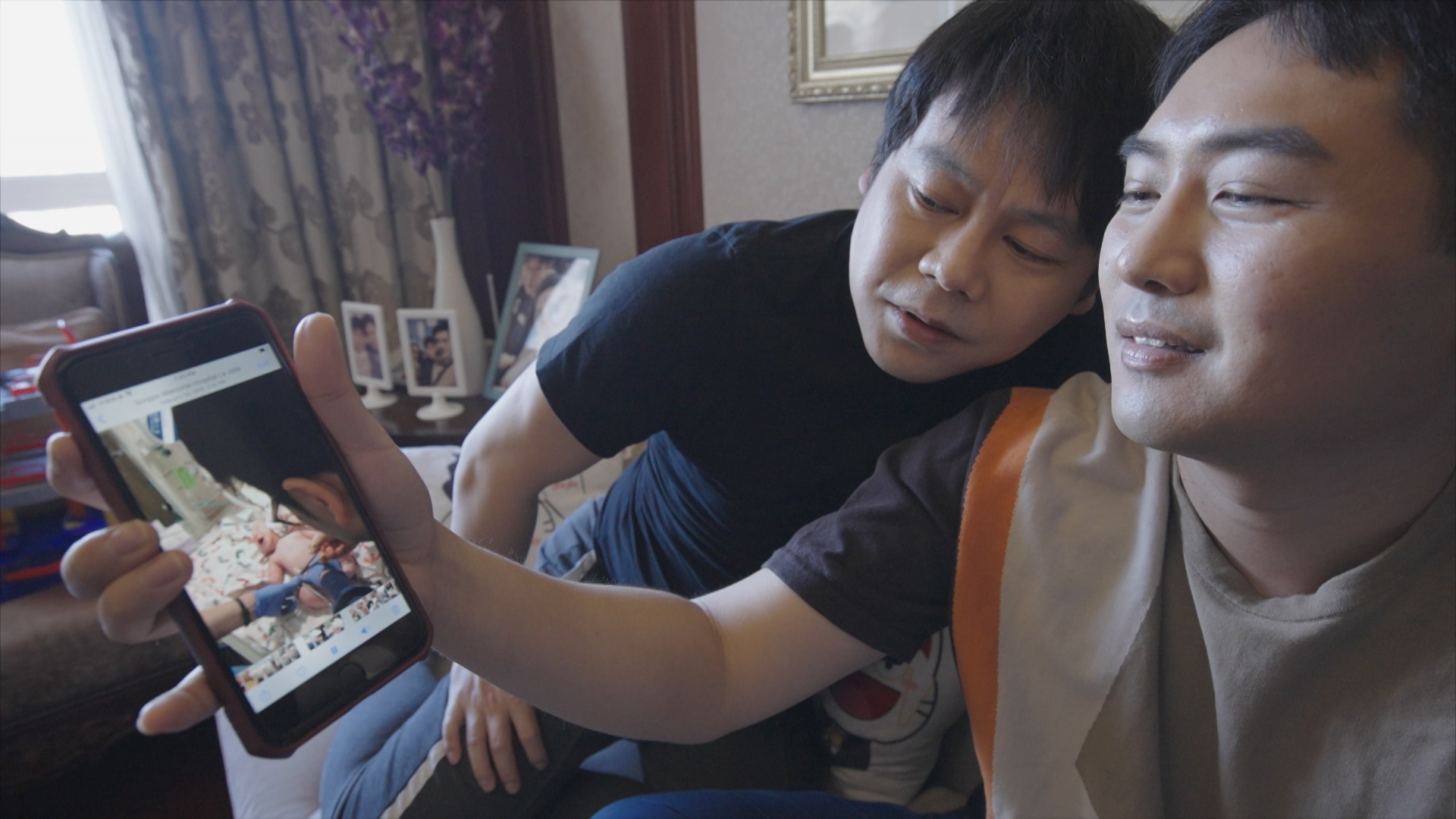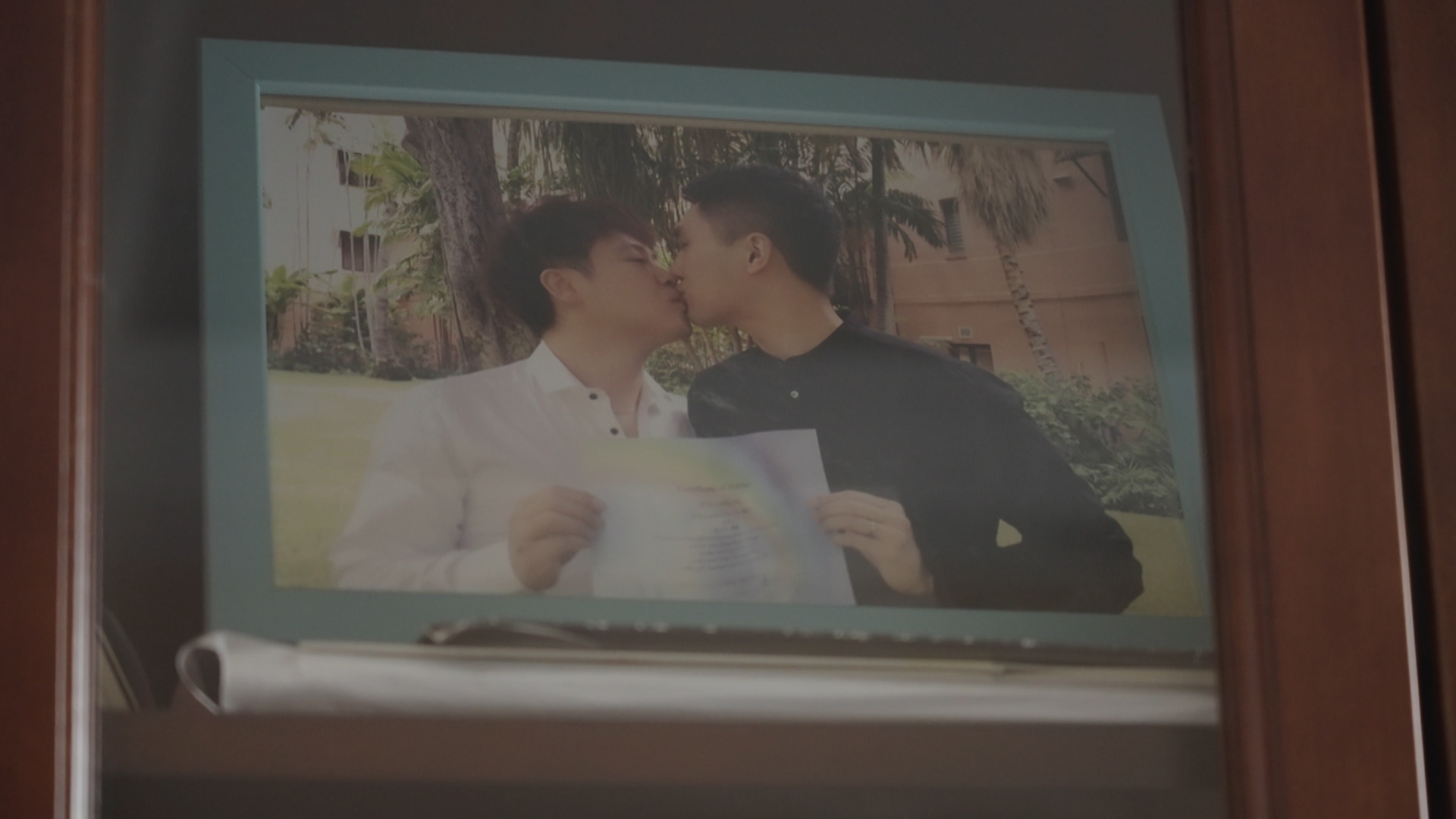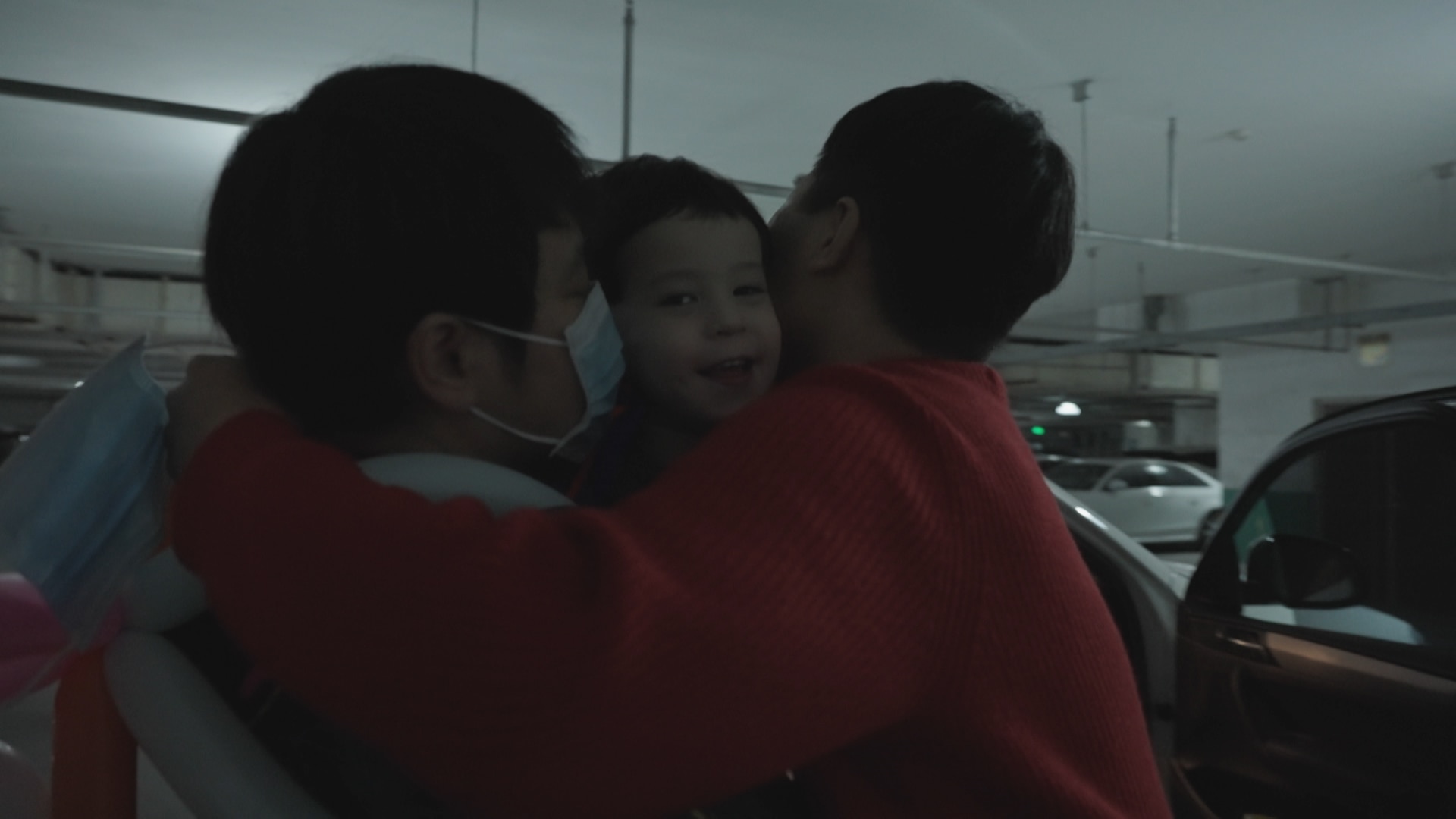Watch China’s Rainbow Families on SBS On Demand
For LGBTIQ+ couples in China, surrogacy is a difficult but feasible option for those wanting to have children. But in a country where surrogacy is illegal and homosexuality stigmatised, how accepting is Chinese society and government to alternative family units?
Pin Wu and Hanson Qin married in Hawaii in 2014. Wanting children, they chose surrogacy – a process that took two years. In 2016, Wu’s biological son Sky was born in the United States and brought to China.
Wu grew up in a traditional family. He hoped that having a child would make his parents more accepting of his marriage and sexuality by providing them with an heir. However, Sky’s birth only increased the tension.
Unable to accept Wu’s sexuality, his parents took guardianship of Sky, only allowing Wu to bring Sky home for the weekend once every two weeks.
“This arrangement is something my parents and I worked out” Wu said.
“Hanson didn’t understand it at first. From a Western perspective, he thinks a child should live with its parents. But in the Chinese context, it’s very difficult for my parents to accept this situation 100 per cent.”
Wu recognises that being gay is difficult for his parents’ generation to understand and accept.
“When I told my mum about the LGBTQ stuff, my mum said ‘Isn’t being gay illegal?’” Wu said.
China decriminalised homosexuality in 1997 and removed it from an official list of psychiatric disorders in 2001. Despite this, a 2017 survey found that out of 91 psychology textbooks in use today, almost half still describe homosexuality as a disease.
The Chinese government’s Three No’s policy – no approval, no disapproval and no promotion – means LGBTIQ+ individuals live in legal ambiguity.
Same-sex marriage is not permitted in China, which can complicate child custody agreements when a couple’s legally unrecognised relationship ends. However, some notary public offices have approved voluntary guardianship appointments for same-sex couples which grant them power of attorney and inheritance rights.
China has the largest LGBTIQ+ population in the world, though exact numbers are unknown. Despite awareness and tolerance having improved over the years, discrimination persists in Chinese society and many argue Chinese laws fail to protect the rights of those in the LGBTIQ+ community.
Assisted Reproductive Technology is only offered to heterosexual couples with marriage certificates in China. Similarly, adoption is illegal for LGBTIQ+ individuals. Surrogacy is banned in the country but can be accessed through consultancy services connecting Chinese couples with surrogates overseas, a prohibitively expensive practice for many.
For Wu and Hanson, overseas surrogacy enabled them to fulfil their dreams of having a child. However, Wu’s parents’ continued opposition of their relationship and the unfriendly attitude towards gay people in China has forced the couple to contemplate life elsewhere.
“We are considering leaving China in the future because you can enjoy more freedom overseas, especially for families that only have fathers” said Wu.
“The cultural environment is really important” Hanson agreed, “There are so many more problems for us in China.”
For now, the men continue to share guardianship of Sky with Wu’s parents.










